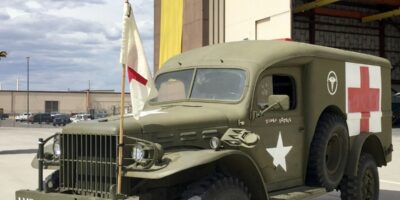Veteran-Focused Educational Resources
Veterans often face unique challenges when transitioning back to civilian life. Educational resources tailored specifically for veterans can help ease this transition. These resources can provide necessary skills, facilitate career changes, and offer emotional and mental support.
Benefits of Veteran-Focused Education

Educational programs designed for veterans often include benefits like GI Bill funding, which covers tuition and fees. Veterans also get access to support services ranging from academic advising to mental health counseling. Many institutions provide dedicated staff who understand veterans’ needs and can help navigate administrative processes.
Types of Educational Resources
There are various types of educational resources catered to veterans:
- Universities and Colleges with Veteran Support Services
- Online Education and Certification Programs
- Vocational Training and Apprenticeships
- Specialized Workshops and Seminars
Universities and Colleges
More and more universities are tailoring their resources to accommodate veterans. They provide veteran centers, which offer a space for veterans to study, relax, and share experiences. These universities often have staff or faculty designated as veteran liaisons. They are there to help with applying for GI Bill benefits and navigating the complexities of financial aid. Many also offer peer mentoring programs, where veteran students help each other succeed.
Online Education
For those unable to attend classes on campus, online education options are abundant. Numerous accredited universities offer online degrees that can be completed at a flexible pace. These programs are often geared towards career advancement, such as business administration, information technology, and health care management. There are also platforms like Coursera, edX, and Udacity that provide certifications in various fields, often in high-demand areas like data science, programming, and cybersecurity.
Vocational Training and Apprenticeships
Vocational training can be a faster route to employment. Programs often include hands-on experience, making the transition smoother. Fields such as automotive repair, welding, and electrical work have high demand. Many vocational schools offer job placement assistance. Apprenticeships are another excellent option. They allow veterans to earn while they learn. Programs like the Department of Labor’s Registered Apprenticeship help connect veterans with employers and provide training in trades such as plumbing, carpentry, and HVAC maintenance.
Specialized Workshops and Seminars
Workshops and seminars tailored to veterans can be incredibly beneficial. They tackle various aspects of civilian life, from resume writing to interview preparation. Some workshops focus on soft skills like communication and teamwork. Others might deal with specific industries, providing deep dives into particular career paths. Organizations like the USO and the American Legion frequently offer such events.
Mental Health and Emotional Support
Transitioning to civilian life involves more than just academics and job training. Emotional and psychological support is crucial. Many educational programs for veterans include counseling services. Veterans can access therapists who specialize in issues like PTSD and anxiety. Some institutions offer group therapy sessions or peer support groups. Having a strong support network improves overall success rates in education and career development.
Financial Aid and Scholarships
While the GI Bill provides substantial assistance, it doesn’t cover everything. Many private scholarships are available exclusively for veterans. Organizations like the Pat Tillman Foundation and the AMVETS National Scholarship Program offer financial aid. Additionally, some state-specific scholarships cater to veterans and their families. It’s also worth exploring federal and state grants. Completing the Free Application for Federal Student Aid (FAFSA) can reveal additional funding options.
Community and Networking
Building a community is another important aspect of veteran-focused education. Joining a veterans’ organization on campus can provide camaraderie and support. Many schools have Student Veterans of America (SVA) chapters, offering networking opportunities and events. Online forums and social media groups also serve as platforms for veterans to share experiences and advice. Leveraging these networks can open doors to internships and job placements. Many employers actively seek veterans for their unique skill sets and experiences.
Career Services
Effective career services are a cornerstone of veteran-focused educational programs. These services help translate military experience into civilian job skills. Resume workshops and mock interviews are commonly offered. Career coaches assist with job searches and provide industry insights. Job fairs specifically for veterans are also held, connecting veterans with potential employers. Some institutions partner with corporations committed to hiring veterans. These partnerships often lead to internship and job opportunities.
Technology and Tools
Utilizing the right technology can enhance educational outcomes. Many schools offer veterans access to laptops and other tech tools. Learning management systems like Blackboard and Canvas make it easier to manage coursework. Veterans can download specialized apps for time management, mental health, and study aids. Proficiency in technology is essential, especially for those pursuing careers in tech-driven fields. Online libraries and databases provide additional resources for research and learning.
Challenges and Barriers
Despite the many resources available, veterans still face challenges. Financial constraints, mental health issues, and adjusting to academic life can be difficult. The rigidity of some educational programs might clash with the flexibility veterans need. Administrative hurdles can also be frustrating. However, dedicated support services can mitigate these issues. Comprehensive orientation programs can help veterans acclimate to educational environments. Understanding these challenges is crucial for developing effective veteran-focused educational resources.
Success Stories and Case Studies
Numerous success stories highlight the impact of these resources. For instance, a veteran who transitioned from military logistics to a project management role through an online MBA program. Another example is a mechanic who used vocational training to become a certified automotive technician. These stories demonstrate the diverse paths veterans can take. They also underline the importance of tailored support. Educational institutions often showcase such success stories to inspire new veteran students.
Government and Non-Profit Support
The government and non-profit organizations play significant roles. The Department of Veterans Affairs (VA) offers various educational programs and benefits. The Veterans Upward Bound Program aims to prepare veterans for college-level education. Non-profits like Hire Heroes USA provide career coaching. The Yellow Ribbon Program can cover additional tuition costs not met by the GI Bill. Collaborations between government agencies and non-profits often result in comprehensive support networks.
Future Developments
The landscape of veteran-focused educational resources is continually evolving. Virtual reality training programs and AI-driven career services are emerging. Institutions are increasingly focusing on flexible learning options. As technology advances, so do the methods of delivering education and support. Future developments are likely to offer even more personalized and effective resources, ensuring that veterans can successfully transition to fulfilling civilian careers.
“`



